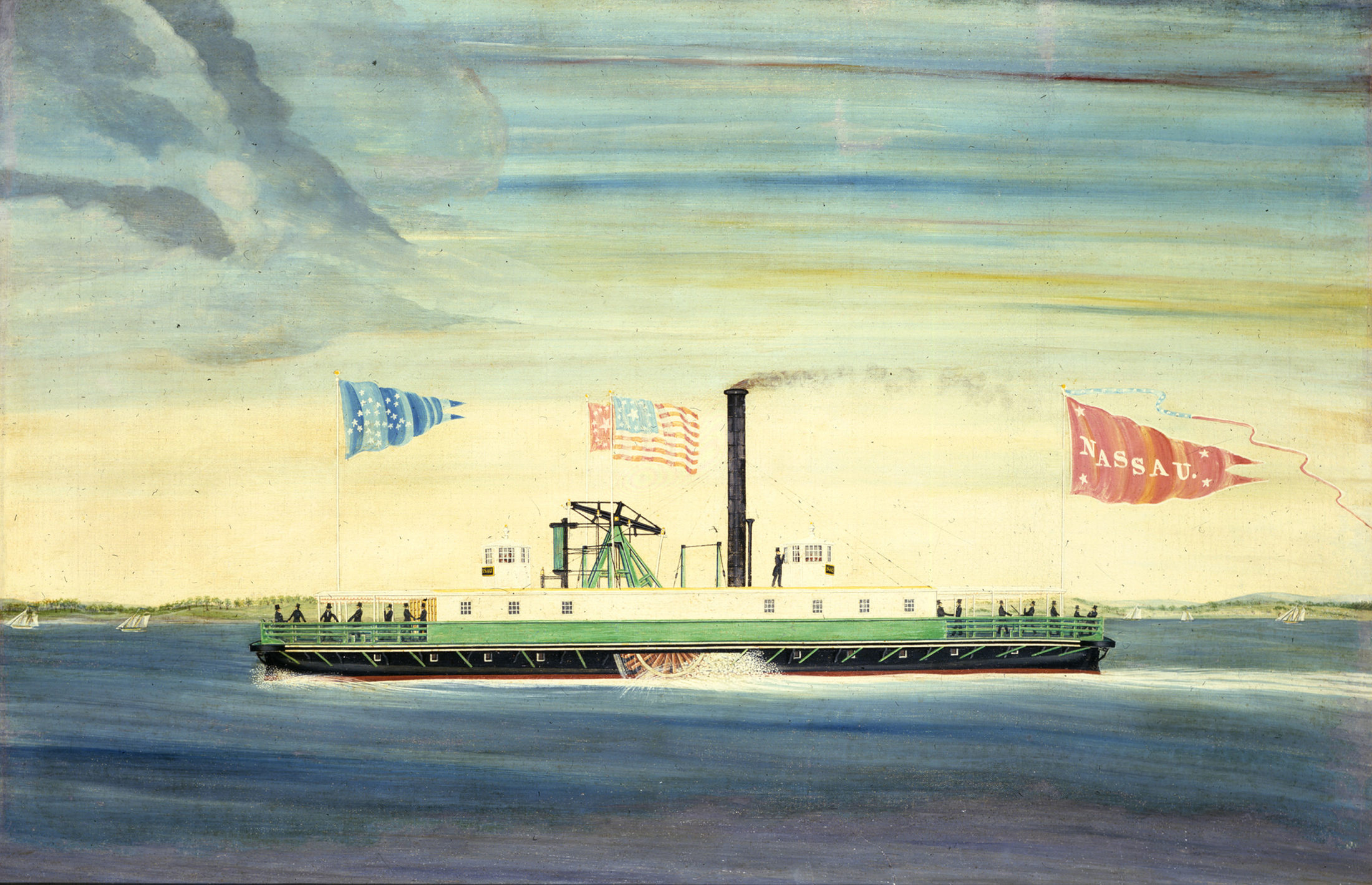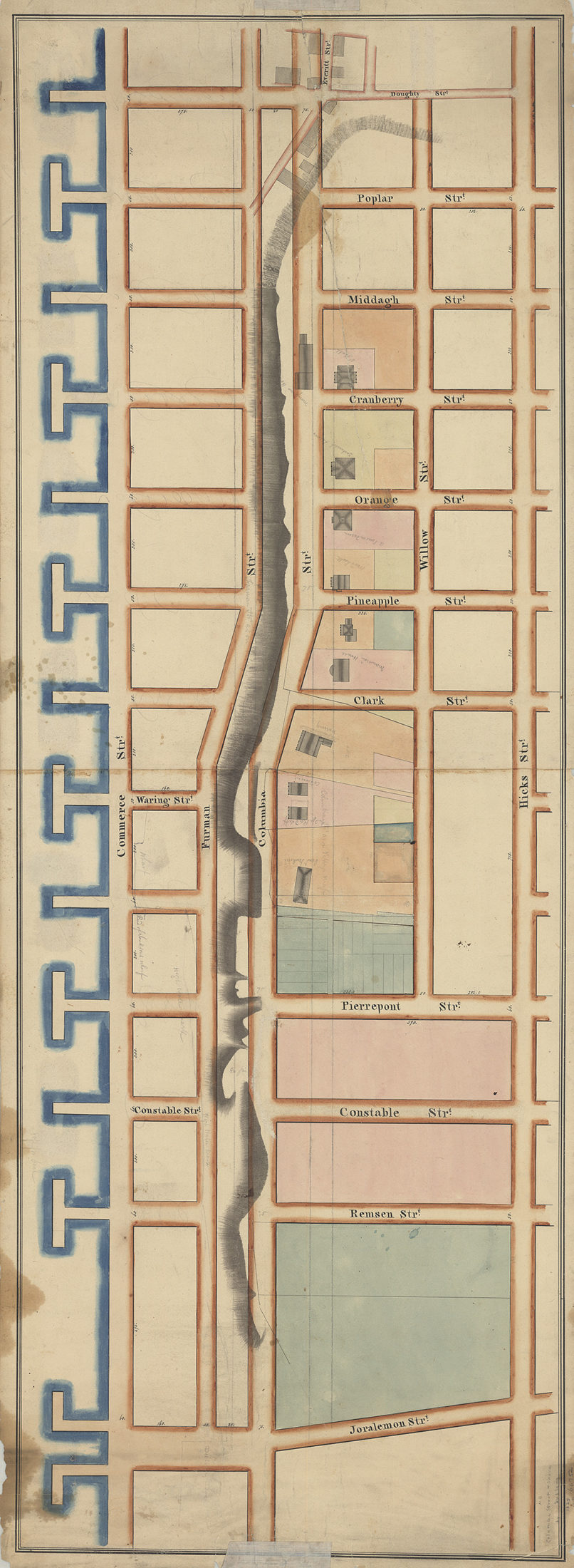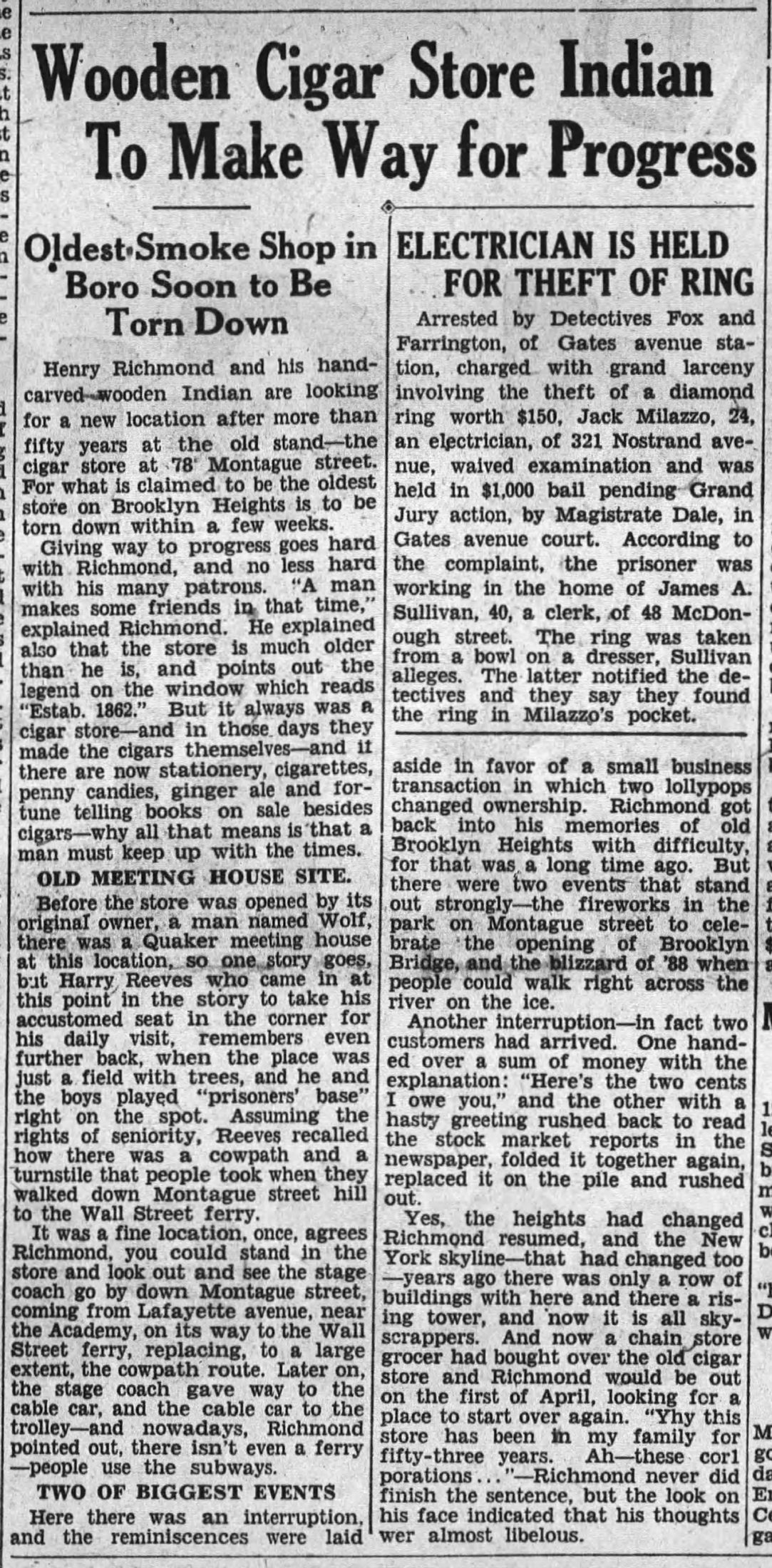America’s First Commuter Suburb
Brooklyn Heights and the Tobacco Shop at 78 Montague Street
BHS’s seated Indian show figure looked out onto Brooklyn Heights from the tobacco shop at the corner of Montague and Hicks Street for seventy years, from 1860 to 1930. Sweeping changes redefined the neighborhood in this period. In 1814, the launch of the first commercial steam ferry from the nearby Brooklyn waterfront attracted the attention of residential developers. By the 1830s, Brooklyn Heights had become “Manhattan’s first commuter suburb,” its streets lined with opulent mansions that overlooked the East River. Thirty years later, the arrival of businesses like the tobacco shop at 78 Montague Street marked the Heights as a commercial hub.

Steamboat Nassau, before 1849
John and James Bard
M1974.100.1
Brooklyn Historical Society

Columbia Street & Shore, 1825
Silas or Isaac T. Ludlam
B P-1825.Fl
Brooklyn Historical Society
The Montague Street tobacco shop changed owners at least four times between 1862 and 1930. All of its proprietors were immigrants. John R. Wolff and August P. Humburger, both German, operated the business before it was purchased by Englishman George Richmond in 1879. Richmond’s son Henry was the store’s final owner before it closed in 1930. As Henry Richmond himself told a reporter from the Brooklyn Standard Union, his store was “giving way to progress,” his business drying up as larger retailers and grocery stores moved into Brooklyn.

Advertisement for tobacco and cigar store at 78 Montague Street
New York Daily Herald, March 26, 1871
For longtime residents of Brooklyn Heights, the shuttering of the Montague Street tobacco shop marked the end of an era. Despite the figure’s caricature of American Indians in Brooklyn, residents missed the Indian in their neighborhood landscape. For many the carving had been present their entire lives. The seated Indian became the focus of nostalgia for supposedly simpler times, “one of the remaining relics of the days when the Heights was little more than a glorified New England village.” Henry Richmond left Brooklyn Heights in 1930, but his show figure remained, purchased by locals and donated to Long Island Historical Society (now Brooklyn Historical Society).

“Wooden Cigar Store Indian to Make Way for Progress”
Brooklyn Standard Union, March 12, 1930